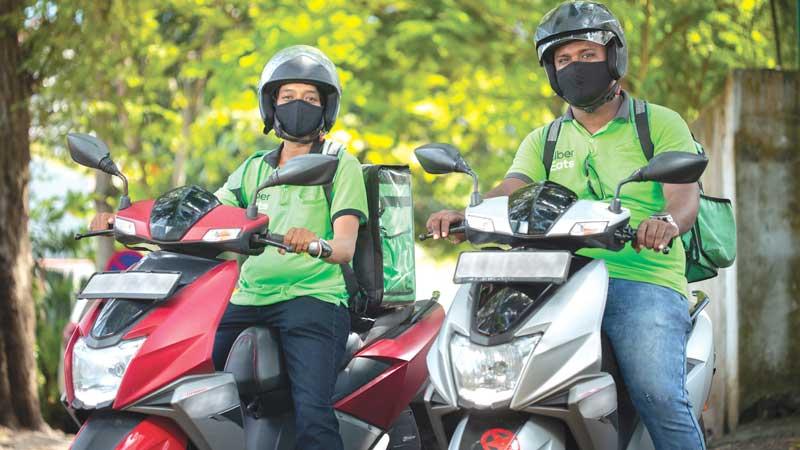
Last year was one that encouraged industries across the board to innovate and improvise. It was a year that saw various industries coming together and working towards a common goal to help the people of Sri Lanka - doing whatever they could in their respective capacities.
Business entities helped communities by providing support to healthcare workers, ensuring key supply lines were kept open, and that residents had access to essential supplies through the curfew. Several hotels offered their facilities as quarantine units, as well as hospitals; organisations came forward to feed the hungry, and supported the armed forces and police in whatever manner they could.
Uber helped tens of thousands of earners on its platform by enabling new means of generating income, such as the ‘tipping’ feature on its app. We helped our courier and driver partners stay safe by providing them PPE gear and initiating contactless delivery.
The year saw people get more comfortable with the idea of having their needs delivered to their doorsteps, and this is one trend we can confidently predict will stay. As people begin to step out and cities begin to cautiously open up, we expect eaters to continue to look to food delivery to satiate their cravings.
Looking ahead, as tens of millions of people get vaccinated across the world, we can expect many businesses to slowly recover from their pandemic slumps. We remain optimistic and hopeful that 2021 will be a year for recovery and healing. For a country that thrives off its friendly faces, sun-kissed beaches and breathtaking views, our growing tourism and hospitality industry cannot recover just by itself. These industries need support.
We will do our bit. What we can promise is that the delivery industry will continue to innovate and improvise, to look for new ways of helping the country and allied businesses heal.
For businesses, last year saw more industries, including pharmaceuticals and retail try out delivery of their products - a trend likely to stay as Sri Lankans get used to the comfort of getting their needs delivered to their doorsteps. Having the advantage of getting their products and services delivered also turned out to be a new revenue stream for some businesses, which helped them stay afloat during challenging times.
We were proud to tie up with SriLankan Catering Ltd, and host their range of offerings on the Uber Eats platform. Apart from the national carrier, several leading hotels and cinemas opted for food delivery too. Through 2021 and beyond, home delivery will continue to be a focus area within the hotel and hospitality industry, and thus be a crucial pillar in scripting its revival.
Seen as an indicator of overall economic growth, the digitisation of sourcing food was not limited to the urban pockets of Colombo, but clearly gathered steam outside the city as well. A recent report by the Asian Development Bank projected this process of digitisation to rally all across Asia through 2025, adding 65 million jobs annually and an additional $184 billion to the continent’s combined GDP per year.
As we Sri Lankans get more comfortable with the idea of technology aiding our daily needs, delivery of goods and services is expected to become a staple across the country including tourist hotspots. This will be key as we open our borders to global tourists, who need to be introduced to our delectable local cuisines.
Given that we have now built systems for supporting the delivery of food, I’m confident it will be a key differentiator and catalyst to aid the recovery of the tourism and hospitality industries.
